How Mulholland Drive helped me understand my son’s autism

An Exploration of Neurodiversity in cinema has just got underway at the Barbican before moving to Depot in Lewes in October and then HOME in Manchester in January, and the natural first response could easily be “what, there’s something to explore?”
Autism, along with physical disabilities and learning difficulties more generally, is one of Hollywood’s multiple blindspots – but there are chinks of light out there, with the help of the centre for film and ethics at Queen Mary University, London, the season has found them.
The focus is obviously on representation; films about autism or autistic people that feature people with autism.
Sia’s now-infamous autism movie Music – which eschewed the use of an autistic actor for its title character – is definitely not on the menu. Nor is Rainman, which was garlanded with critical acclaim and award including a Best Actor Oscar for Dustin Hoffman. His character today looks stereotyped and cliched at best, at worst cruelly mocking. As the parent of a child with autism, it makes me wince.
The season demonstrates that it is perfectly possible for film-makers to do better, whether it’s with Temple Grandin, a biopic of the accomplished autistic thinker and advocate who transformed the cattle farming industry, or the rom-com Keep the Change, which cast autistic actors in the lead role.
As the parent of an autistic child, however, something which involves one going through a long, and not always comfortable, learning process, the film that most struck me in the lineup was David Lynch’s Mulholland Drive which isn’t, on the face of it, about autism at all.
It also doesn’t feature any autistic characters or actors either, at least not that we know of. You’ll see it variously described as neo-noir, an erotic thriller, a psychological drama, all of which tell you that it doesn’t fit neatly into any genre.
But Georgia Kumari Bradburn, the author of The Autistic Film Critic blog, who will introduce the film when it is screened next week, can explain its presence.
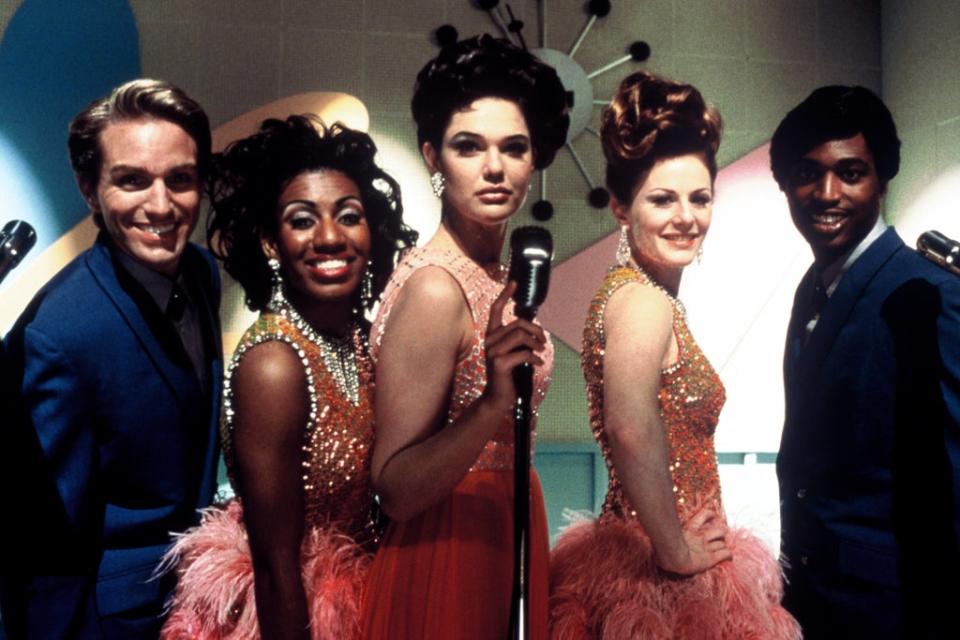
“The narrative of Mulholland Drive, it doesn't makes sense to some people, it doesn’t have a traditional structure. But while you’re experiencing it, it has pieces that fit together. It speaks to the experience of being autistic,” she says.
I was familiar with Lynch’s work when I saw it sitting there in the line-up, but the film was a blindspot for me; one of those iconic titles I know I should have seen but hadn’t. Every cinephile has one or two of those, especially if they’re not full-time critics.
So I blocked off an evening to cope with the near two-and-a-half-hour run time and sat down to watch. By the end, I think I understood. Better anyway. It also helped me to empathise with some of what my son’s been going through. Better than I had. Certainly better than some of the rare portrayals of autism I’d previously encountered.
Legendary film critic Roger Ebert once famously described cinema as “the empathy machine”. So in this case it was doing its job.
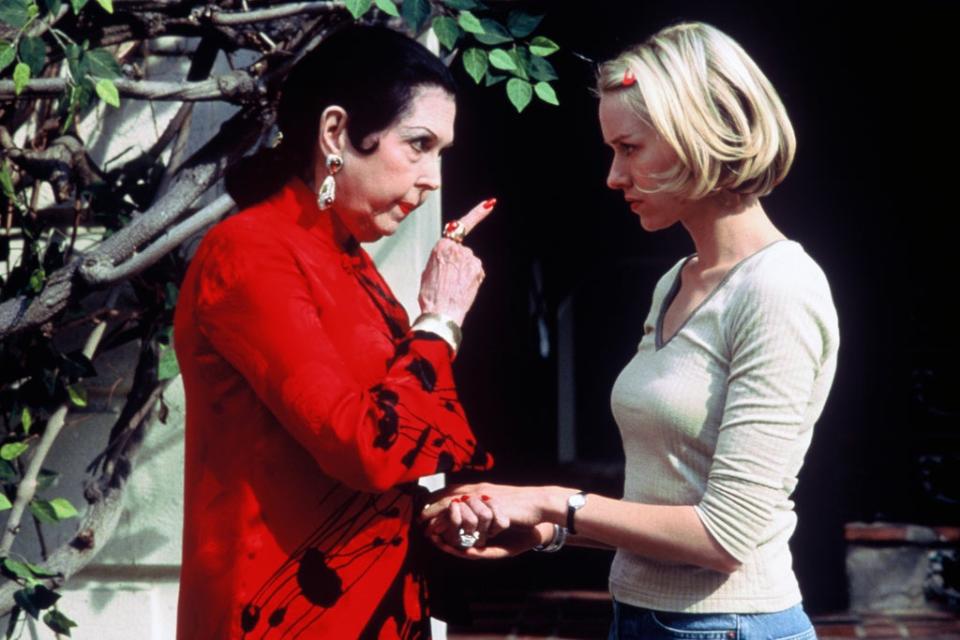
For those who have yet to see the film, Lynch gave it the tagline of “a love story in the city of dreams”. But it has, perhaps, better been described as a “poisonous valentine” to Tinseltown. It’s the anti La La Land, one that catapults the viewer into Hollywood’s dark underbelly.
It wouldn’t be the first or the only film to do that. The grim, sleazy side of that town has provided a rich seam for filmmakers to mine. However, it is the way Mulholland Drive goes about doing it that makes it a worthy inclusion in the season. The reality it presents is disturbing and confusing, a reality that becomes more disturbing the deeper the viewer is sucked down its rabbit hole. The narrative leaves the viewer disorientated and in search of a buoyancy aid to grab a hold of.
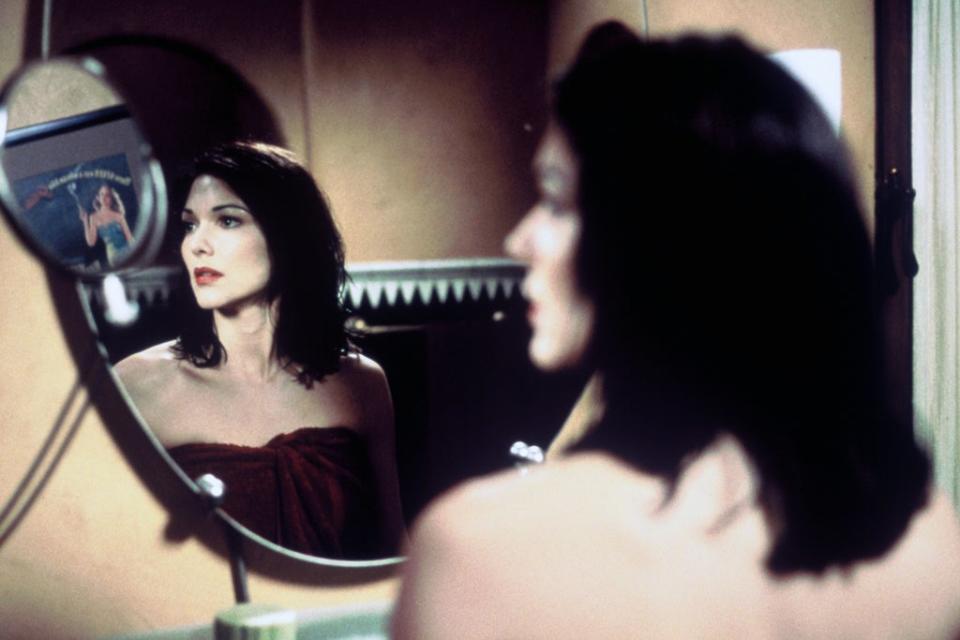
It is never provided. The stories of Betty, the classic naive ingenue with a sunny smile, dreaming of stardom, and Rita whom she tries to help find her memory, flips partway through with many of the characters cast in different roles. Rita has become a star. Betty is now Dianne, with whom she has had a failed affair, perpetually in her shadow. There is nothing sunny about Dianne’s world.
Part of the reason for the film’s unusual structure is clearly down to the circumstances of its birth. It was only turned into a movie with an expanded script after its rejection as a TV pilot. It is interesting to speculate as to what might have happened had history gone the other way. There would certainly have been a sizeable hole in some of those “best of all time” lists.

The Christian Science Monitor film critic David Sterritt wrote that the director had said Mulholland Drive tells a “coherent, comprehensible story”.
One suspects that Lynch, who has playfully dropped hints as to the film’s meaning for fans to seize upon, may have said that with his tongue in his cheek. Plenty of theories have been advanced. As an aficionado of science fiction, especially the cerebral and the strange, my initial impression was of parallel worlds abutting and distorting each other.
Bradburn, however, talks about another: “One of the most popular readings, if one were trying to solve it, is that the film is the dream of the central character. In it, she (as Dianne) is attempting to rearrange the pieces of her life to fit into something better, that she has control over.
“A key thing for me is to control my surroundings. But things aren’t in our control and we can’t access the support we need. We long for a world where we can rearrange the pieces to work for us. That reading speaks to me.”

It spoke to me as well; as a means for the non-autistic viewer to get a taste of what it’s like to be autistic, and about what it’s like to be neuro-nontypical in a neurotypical world that callously thrusts the former into often frightening situations which they cannot control or even influence to any degree.
Whatever the film means – and it might be best not to try to divine any meaning – a walk through its strange and troubling realities works quite well as a demonstration of what it’s like for the autistic person trying to live in our hostile and disturbing world.
And maybe, for the parent, confronted by behaviour that can be hard to understand, it serves as an explainer.
Bradburn is certainly on the money when she talks about the struggle to access support, even the most basic support. You are regularly forced to engage in debilitating battles with local authorities and agencies such as Childhood and Adolescent Mental Health Services that expend far more effort on evading their responsibilities than they do in fulfilling them. Sometimes they are disturbing. Sometimes they are threatening. I’ve spoken to people lost in the bureaucratic hellscape who have encountered threat and who have been berated and attacked.
Professor Steven Eastwood, head of film practice at Queen Mary, who will introduce the film along with Bradburn, is one of those who cautions against trying too hard to dissect what the film is about. “Cinema can assume a sort of perfect human or a certain kind of normal. Hollywood is emblematic of that. It’s all normative. It’s all about holding up conservative ideas of what it is to be a human.
“The film depicts an outsider trying to break in and perform in that world.”
Eastwood points to the famous, and distinctively discomfiting in the era of #MeToo, casting scenes involving Betty. She rehearses a scene one way but performs it quite differently, pressed into using sexuality to satisfy the demands of her audience and prospective co-star.
“It’s not just about autism. It is about gender, it is about all kinds of things. Betty is trying to masquerade as someone she isn’t. That’s a challenge many people with autism face, trying to fit into a world with invisible codes and rules.”
Bradburn, who talks about Lynch’s “autistic sensibility”, picks up this point when she speaks about the “trauma of constantly masking”.
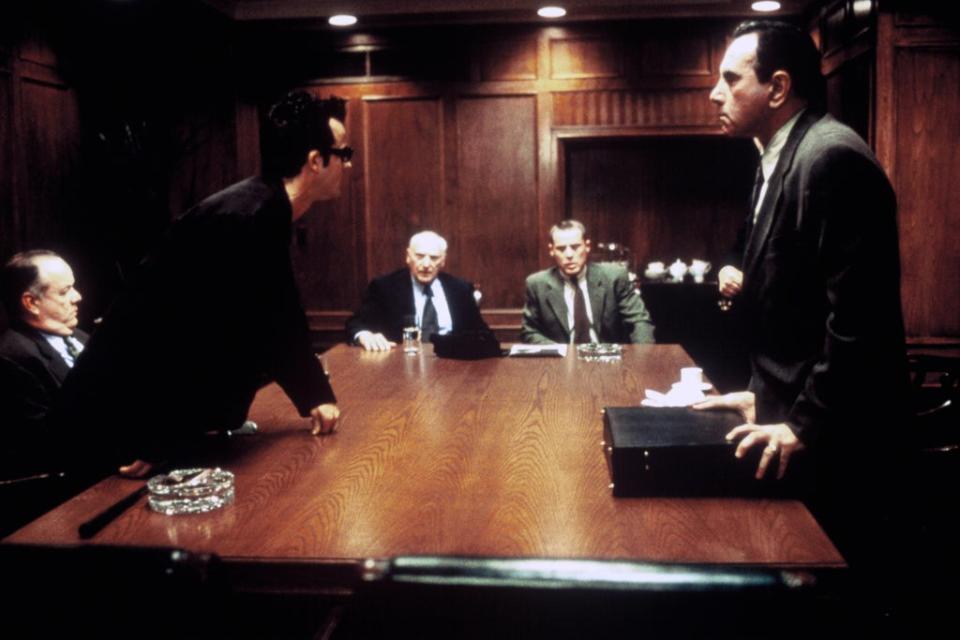
“The trauma is quite horrifying,” she says. One thing Mulholland Drive clearly depicts is the normality of every day becoming horrifying. “That is a major thing that really spoke to me,” she says.
While it may be unintentional, it seems clear that the film is an effective way of demonstrating the reality of living with autism to a neurotypical viewer. It’s far from just the casting scene.
Many zero in on Angelo Badalamenti’s mobster famously spitting out the “best espresso in town” into a napkin. Winkie’s diner might the last place you’d want to drink espresso – other than in a meeting with Badalamenti’s character – given what (or who) waits in the alley outside. Or maybe they’re not actually threatening at all. Maybe it’s just solidly conventional Dan, who describes the threatening creature in his dream to Herb while in the diner, being scared by difference. Maybe it’s fears of difference that the neurotypical typically display that contributes to making the lives of the neuro-nontypical unnecessarily hard.
Mulholland Drive can put the viewer in a constant low-level cinematic panic attack, or perhaps the feeling of just being on the verge of one.
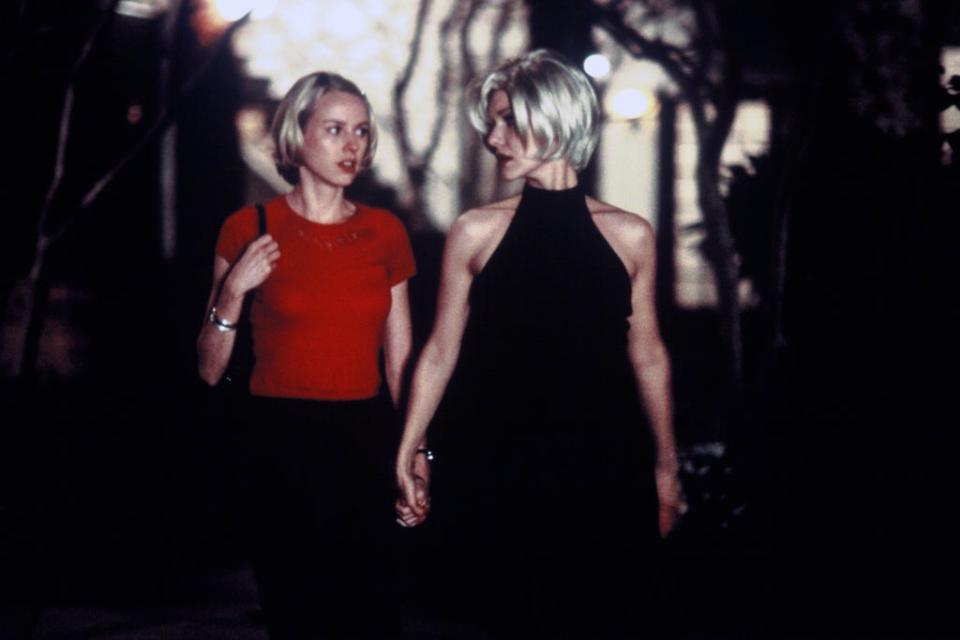
Eastwood, who works with a group of autistic filmmakers which includes Bradburn, says: “The world we live in is the problem. It doesn’t allow proper coordination. We talk a lot in the group about stimming. Feeling your body is not allowed to rock and move in the way you want to. The film is about a body that wants to explode and be more than itself but it cant.
“It is a fascinating proposition where you can enjoy or inhabit that place of not knowing and not solving the riddle and just sit with it. It has all these fascinating objects. What does this look like, what is it there for, and you just don’t know the answers.
“In a conventional film a director gives you a riddle and you solve it. To me that seems so redundant. When Lynch says look out for a lobster or the phone, they’re all red herrings.”
Indeed they are. The mystery is the point. Or rather, the feeling of being in the mystery, which allows you to watch this film on multiple occasions and take something new from it every time. It has its own language. Good luck with trying to master it, however. You’ll find taking a crash course in Hungarian easier.
“In choosing films that are not kind of obviously about the topic we truly open cinema. Mulholland Drive is such a fantastic choice because it is a much loved and much discussed film. I wasn’t aware of it being perceived in these terms,” says Gali Gold, the Barbican’s head of cinema. “It transitions you as the spectator to going through an experience that you can only imagine. It opens up rather than closing down.”
If you haven’t already, go see it. Don’t try to solve it. Just go see it. Live in it a while. Experience it. It might help you to understand.
Perhaps in ten or twenty years time, we might also be able to talk about a film explicitly concerning autism that does what Mulholland Drive does by casting a light on it. If that was by an autistic film maker like Bradburn, with autistic actors, it would represent some kind of progress.
Read More
How Washington made itself the most welcoming state for Afghan refugees
Why can’t Britain create a Zuckerberg or a Jobs?
Cruelty or conservation? Fish ‘silently suffering stress’ in Britain’s aquariums
Superconductivity could change the world if we just knew how it worked
Another tale of two cities: Nottingham, Sheffield and the ‘levelling up’ agenda
Tales from the edge: The Norfolk village disappearing into the sea

 Yahoo News
Yahoo News 